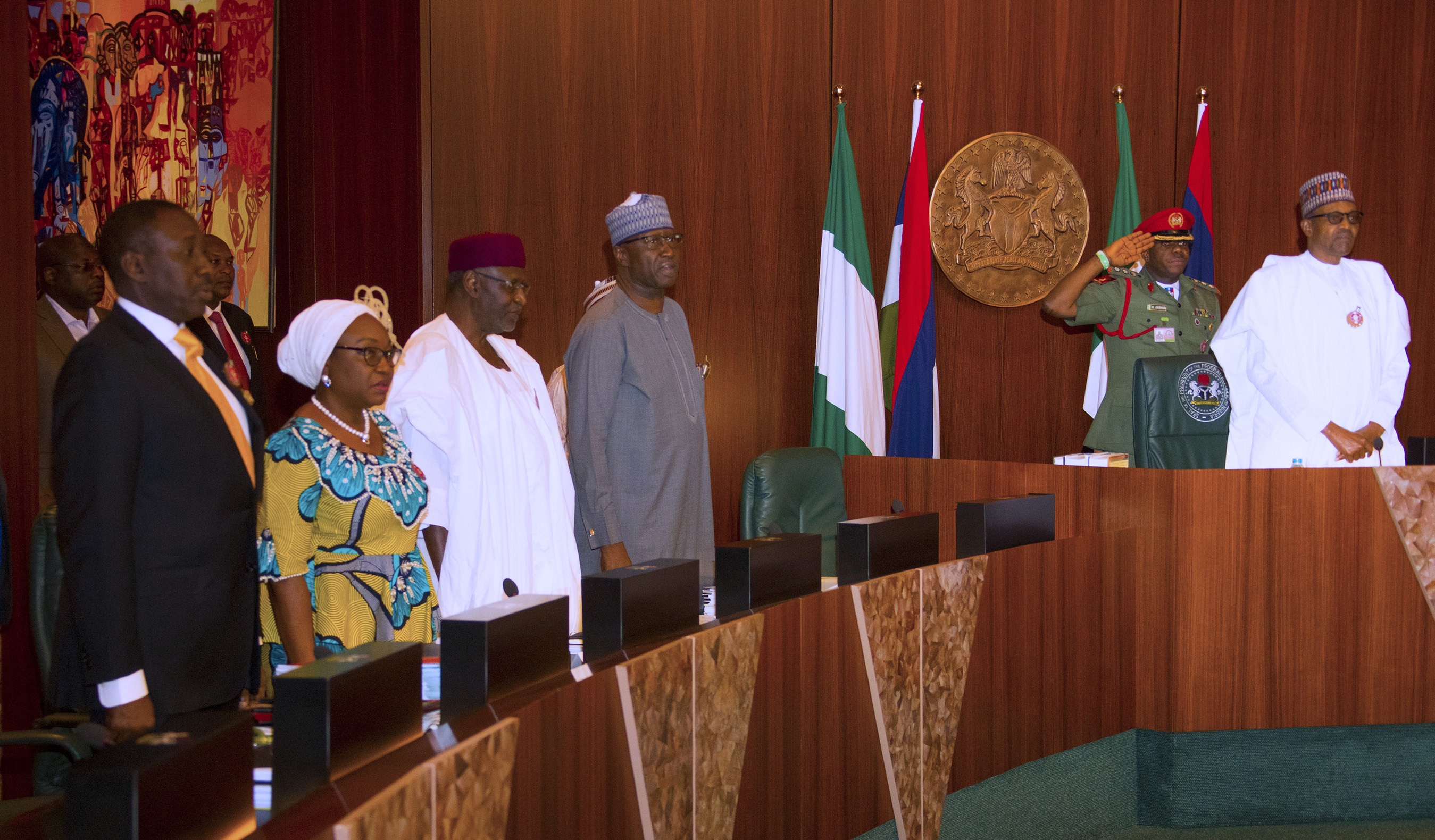Nigeria’s spending structure unsustainable — Budget Head
Nigeria’s current trend of spending more money on running the government than on building new infrastructure is unsustainable, the country’s top budget oversight official said. Low revenue collection and high recurrent costs have resulted in actual capital expenditure below N2 trillion ($4.88 billion) a year for a decade, Ben Akabueze, director-general of the Budget Office, […]

From right: President Muhammadu Buhari; Secretary to the Government of the Federation, Mr. Boss Mustapha; Chief of Staff, Mallam Abba Kyari; Head of Civil Service of the Federation, Mrs Winifred Oyo-Ita and National Security Adviser, Major General Babagana Monguno during the Federal Executive Council meeting held at the Presidential Villa Abuja on Wednesday. PHOTO BY: […]
Nigeria’s current trend of spending more money on running the government than on building new infrastructure is unsustainable, the country’s top budget oversight official said.
Low revenue collection and high recurrent costs have resulted in actual capital expenditure below N2 trillion ($4.88 billion) a year for a decade, Ben Akabueze, director-general of the Budget Office, said Tuesday in a virtual presentation.
“Hence, the investments required to bridge the infrastructure gap are way beyond the means available to the government,” Akabueze said. Recurrent spending, allocated towards salaries and running costs, has accounted for more than 75% of the public budget every year since 2011, he said.
Africa’s largest economy requires at least $3 trillion of spending over the next 30 years to close its infrastructure gap, Moody’s Investors Service said in November. The country’s tax revenue as a proportion of gross domestic product is one of the lowest globally, according to the International Monetary Fund.
“Huge recurrent expenditure has constrained the provision of good roads, steady power supply, health care services, quality education and quality shelter,” Akabueze said.
Nigeria should amend its constitution to create six regions to replace the existing 36 states, which each have their own governments, Akabueze said. The country also needs to reduce the number of cabinet ministers to a maximum of 24 from more than 40 and cut federal ministries to fewer than 20 from the current 27, he said.
“No country can develop where a large part of its earnings is spent on administrative structures rather than on capital investment,” Akabueze said. (Bloomberg)
